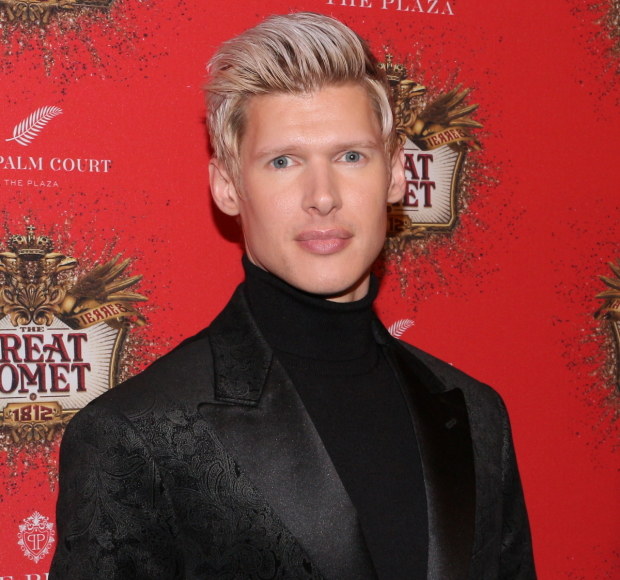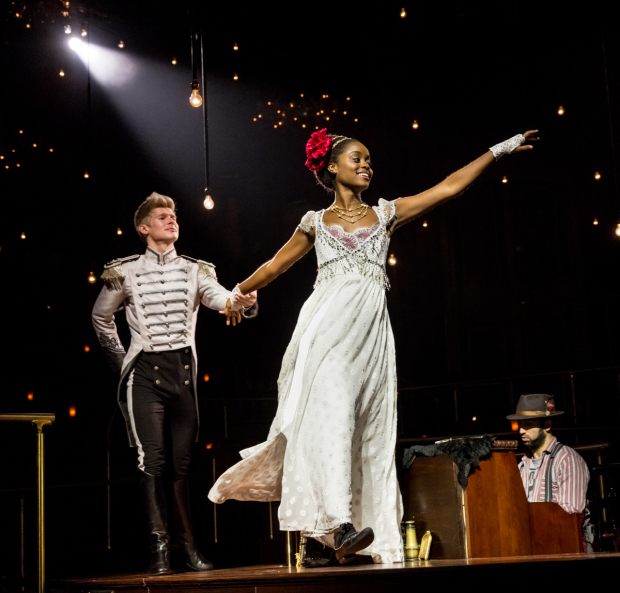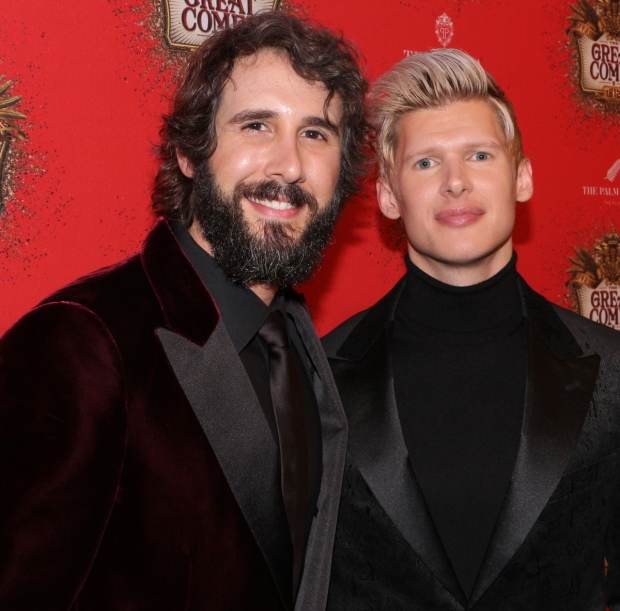Lucas Steele: From TheaterMania's Call Center to The Great Comet on Broadway
A decade ago, Steele worked at our office. Then Broadway came a-calling.
"TheaterMania has a special place in my heart," Lucas Steele says. "I worked phone sales [at the company] in 2005, maybe 2006. When I booked Threepenny, that was when I left."
Threepenny, Roundabout Theatre Company's revival of Kurt Weill and Bertolt Brecht's operatic musical, featured Steele in an ensemble role alongside Alan Cumming, Cyndi Lauper, Jim Dale, and a host of others. It was Steele's Broadway debut, and a launching pad to leading roles in off-Broadway shows like The Kid and Myths and Hymns.
And then, in fall 2012, came a strange, immersive musical at Ars Nova called Natasha, Pierre & The Great Comet of 1812. Described as an "electropop opera," it was written by Dave Malloy and directed by Rachel Chavkin. Steele was booked to play the character Anatole, famously described in the opening number as follows: "Anatole is hot. He spends his money on women and wine."
The acclaim of Great Comet at Ars Nova was unprecedented. The show transferred to a custom-built tent in the Meatpacking District, which later moved to an empty lot on 45th Street in Midtown. That empty lot was next door to the Imperial Theatre where Steele currently plays Anatole, a role for which he won a Lucille Lortel Award, on Broadway.
It's not your average Broadway trajectory, but in Steele's career, nothing he's done is average.

(© David Gordon)
How was this project first pitched to you for the Ars Nova run?
My agent sent me the breakdown, and it said, "an electropop opera based on seventy pages of War & Peace." For Anatole, they were looking for a David Bowie-like essence, and there was a demo that Dave Malloy had made where he was singing both parts of "Natasha & Anatole," which is a duet. That song is really, really weird. There's not really a through-line on the melody. It sort of stands alone outside a lot of the style of the piece, and I love weird and strange, so I was like sure, I will go in for this.
When did you find out that the production would be transferring off-Broadway?
When we opened, and the review came out, the rest of our run sold out in under four minutes. I think that's when talks immediately began to transfer it off-Broadway. It was in the middle of the run that they told us to think about our schedules next year. That was the fall of 2012. We had a date to start rehearsal, but we had no theater and no information about how it was actually happening.
Later on, we found out they were having difficulty finding a space that they could get the permission to do what they needed to do to keep the show intact artistically and conceptually. They were looking for places for months. Even when we started rehearsal, we weren't quite sure what was happening. Then a week later, [they said], "We're going to build a theater inside a tent," and we were all like, "OK, sure."
It was a testament to how much we believed in the piece that we all went along with it blindly. First of all, starting the rehearsal process and not knowing where the show is happening is crazy. There are a lot of Hail Marys that got completed at the last moment, and you learn to trust that over time.

(© Chad Batka)
What was it like to adapt a performance you've already honed for a long time for the new leading duo of Denée Benton and Josh Groban?
It's your job as an actor to figure out how to find your way into the people you're playing opposite. Everyone has different processes. There was a period of time where I had to deal with letting go with a lot of things that existed that I felt worked in order to honor someone else's process, which I think is super important. It needs to be a collaboration or else it's not going to work.
Denée and Josh have been extremely open throughout this experience and very conscious of the fact that this piece functions in a theatrical language that is very different from any piece that has come before it. They have been listening to the things that we have learned over the years of how this style and the language of the acting works. And they're both really wonderful people who are quite aware that this is their first outing, and a really incredible first outing to be a part of. I've had a great time with both of them.
For people who are unsure about seeing the show, how do you explain Natasha, Pierre & The Great Comet of 1812 to them?
Number one, this is an incredibly human story. There are very few people who go through their life without questioning "Why am I here, what am I doing?" And overall, that is the extending arch of the piece. Secondly, I think, the music and the way that the piece is framed artistically, is a lot of genius and a little bit of history. I don't know that anyone will be able to see anything like this ever again.
Commercial theater is a beast unto its own, and to be able to graduate to things that are unique or have their own artistic identity is getting harder and harder to do. It's interesting because we were around before Hamilton happened. However much a part of me is like, "They leapfrogged us," I'm grateful that they did, because I think it helped shift what people accept in theater. It did that to an advantage for us. It makes a younger set of people hungry for something that's unique and individual. So it's history. Who knows if it'll ever be here again?

(© David Gordon)







